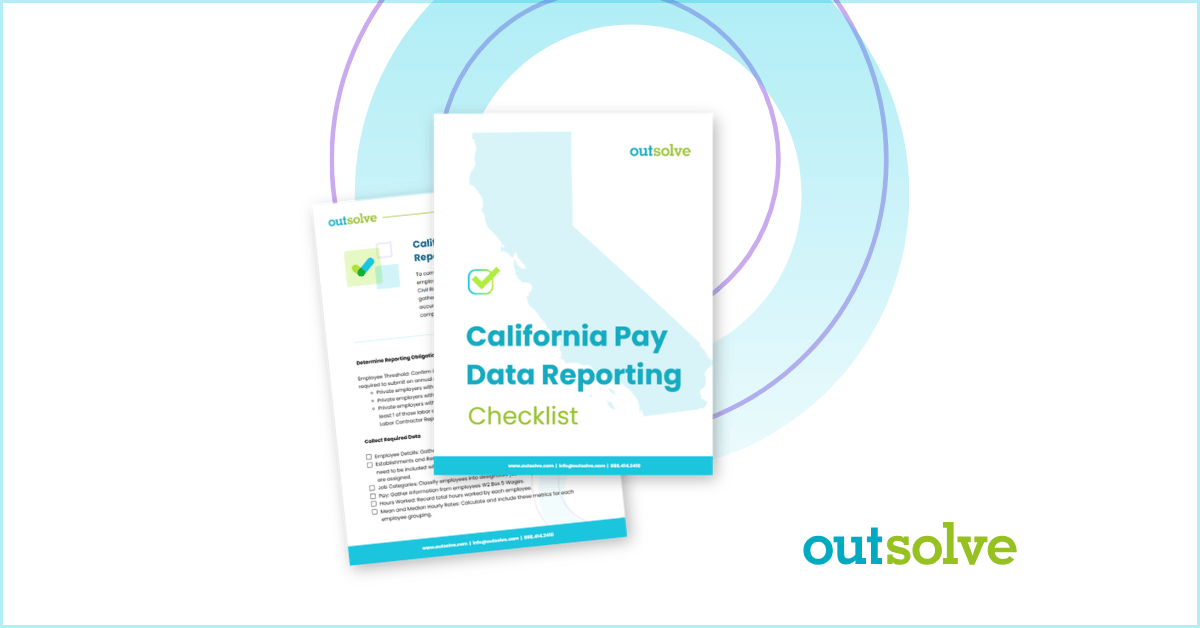5 min read
What You Need to Know About the Vermont Pay Transparency Law
 Sarah Jane Hannan
:
May 20, 2025 1:38:25 PM
Sarah Jane Hannan
:
May 20, 2025 1:38:25 PM

Pay transparency laws are gaining momentum across the United States, aiming to reduce gender and racial wage gaps. These regulations require employers to include salary ranges in job postings and provide compensation information upon request from employees or job applicants.
This trend has now arrived in Vermont, where new pay transparency legislation is set to go into effect July 1, 2025. So, what is the new Vermont pay transparency law, what does it mean for HR, and how can you stay ahead of the game and help your organization comply? Let’s review the details of the law and how HR can prepare their organizations.
Here’s three key takeaways you’ll learn in this article:
- The main changes you should make today to ensure compliance with Vermont’s upcoming pay transparency law.
- How this law affects talent acquisition, job postings, communication of salary information, and recordkeeping.
- Proactive tips and action items for HR.
Overview of Vermont’s Pay Transparency Law
Vermont’s pay transparency law is officially known as H.702 - An Act Relating to Pay Transparency. It was signed into law in 2024 and will go into effect on July 1.
The goal behind this law is to make compensation practices more transparent and equitable for job seekers and employees. It’s all about making sure that employees, regardless of their gender, race, or other personal characteristics, are being paid fairly for their work and closing any historical pay gaps.
The law mandates that employers provide specific pay-related information to both current and prospective employees. By requiring salary transparency in job postings and during the hiring process, Vermont is supporting the elimination of pay discrimination.
Now that you know the basics, let’s get more specific and break down the key requirements of the law.
Pay Disclosure Requirements in Vermont
Again, one of the primary changes under Vermont’s pay transparency law is that employers are now required to disclose salary ranges in job postings. This is a major change from previous practices and pay philosophies, where salary information was usually not volunteered or disclosed.
Here’s the scoop on salary disclosure under this law:
- Salary Range in Job Postings: Starting July 1, 2025, any employer with at least five employees and with at least one employee working in Vermont must include the pay range for any job that they advertise. This range must be included in job postings, whether online or in print, for both internal and external applicants.
- Pay Information Upon Request: Employers are also required to provide salary information upon request from job applicants or current employees. This means that if a candidate asks for the salary range during the interview process, or after receiving a job offer, you must provide it.
- Timeframe for Disclosure: Employers must disclose salary information before or at the time an offer is extended so that employees and candidates have a clear understanding of the compensation before accepting an offer and committing to a position.
No More Questions About Salary History
Vermont’s law also includes a prohibition against pay inquiries. Remember when it was common practice for HR to ask the question “What was your salary/wage in your most recent job?” Well, this law changes that, meaning that employers are not allowed to ask candidates about their salary history during the hiring process. The rationale is that asking about past compensation can continue the cycle of pay inequities. By removing this question from the hiring process, it prevents employers from inadvertently continuing pay disparities based on a candidate’s previous salary.
So, what does this mean for you? When conducting interviews or reviewing resumes, it’s critical to focus on the skills, experience, and qualifications a candidate brings to the table, not how much they were paid at their last job. If you have salary questions on your list of interview topics, go ahead and remove it.
Employee Vermont Pay Transparency Rights
Vermont’s pay transparency law benefits both job seekers and current employees. Under this law, they have the right to:
- Request pay range information for their own positions and those of other employees. This is particularly important if an employee feels that their pay is not aligned with their peers, especially when comparing individuals in similar roles or with similar qualifications.
- Raise concerns about pay disparities without fear of retaliation. Employees can now question their pay and seek adjustments without worrying about being penalized by their employer.
Of course, questions about pay, particularly about other employees, are sensitive. It’s important to remember that HR needs to strike a balance between pay transparency and confidentiality concerns, as well as data privacy and protections rules and regulations.
Recordkeeping & Compliance Obligations
To stay compliant, employers must keep records of the pay ranges provided to employees and applicants for at least five years once the law goes into effect. This documentation is essential in case the Vermont Department of Labor conducts an audit or if an employee files a complaint.
Additionally, employers will need to track and retain records of any pay inquiries made by employees and applicants. This will likely require HR departments to adjust their systems and processes, so records are easy to access and review in case of an audit.
Penalties for Non-Compliance with Vermont Pay Transparency Laws
So, what happens if an employer doesn’t comply with Vermont’s pay transparency law? The penalties for non-compliance can be steep, and the state has the authority to enforce fines for violations. Specific fines will depend on the severity and nature of the infraction, but the Vermont Department of Labor can issue penalties for failure to disclose required salary ranges in job postings or failure to provide pay information upon request.
Employers could also face legal action if an employee believes they’ve been discriminated against due to a failure to comply with the law.
Impact on Employers & HR Best Practices
With Vermont’s new law in place, it’s time for employers to adjust their HR practices to meet the requirements. Here’s some steps you can take to make sure your company is ready for July 2025:
- Update Job Postings: The most obvious change is that you will need to start including pay ranges in job postings. This might require you to review and update all job descriptions and posting templates to include salary ranges. Be mindful of not just meeting the legal requirements but also confirming that your salary ranges are competitive and aligned with market standards – this can be done through salary benchmarking.
- Review Compensation Structures: Take the time to evaluate your current pay structure to ensure that it’s equitable and consistent. With pay transparency laws, employees will have more access to compensation information, so avoid disparities within the same roles or departments. Consider conducting a pay audit identifying any gaps that need addressing.
- Train Hiring Managers: Make sure that your hiring managers understand the new law and are trained in how to communicate pay ranges with candidates. Hiring managers should also be aware of the prohibition against asking about salary history and ensure that interview questions are focused on skills and experience and not previous pay.
- Consider Multi-State Implications: For companies with operations in multiple states, it’s important to stay up to date on other state-specific pay transparency laws. Vermont’s law may differ from similar laws in other states, so make sure you’re aware of the nuances in each jurisdiction and that your job postings meet each state’s requirement. View our Ultimate Guide to Pay Transparency Laws by State here to familiarize yourself with all the different laws.
- Maintain Clear Documentation: HR is no stranger to keeping records and documentation, and this process is no different. Keep accurate and detailed records, for at least 5 years, of salary ranges provided to candidates and employees, along with any pay inquiries. Having a solid record-keeping system will help support compliance and protect your company in case of audits or disputes.
Additional Resources & Next Steps
For those who want even more detail into the specifics of Vermont’s pay transparency law the full text of H.702 is here. Also, working with a compliance expert like OutSolve can help your organization stay on top of your state pay transparency laws. We also offer services like salary benchmarking and pay equity audits to ensure your pay practices are non-discriminatory and that you have a competitive salary structure. Outsolve’s Ultimate Guide to State Pay Transparency Laws is a great resource for employers who need guidance on navigating these complex requirements. You can find it here.
What the New Vermont Transparency Law Means for Your Organization
Vermont’s pay transparency law is just around the corner, so it’s important for HR to stay ahead of the curve. The law’s focus on transparency and equity will ultimately benefit both employers and employees by cultivating a more open and fair workplace. By updating job postings, reviewing compensation structures, and training hiring managers, your organization will be ready come July 1 2025.
Remember, proactive compliance is key. Don’t wait until the last minute to make adjustments! Reach out to our compensation experts for guidance and ensure that your company is ready.
Subscribe to our newsletter to stay updated on any new pay transparency laws that are enacted and other HR news, tips, and insights.
Sarah Jane Hannan plays a vital role in leading compensation projects at OutSolve, where her ability to work efficiently and collaboratively with clients ensures the successful execution of complex initiatives. She brings expertise in external market benchmarking and supports the design and interpretation of Multiple Linear Regression analyses, translating complex data into actionable recommendations. Sarah Jane is an expert in state pay transparency laws and provides guidance to companies nationwide on how to remain compliant with the requirements. She is also the product manager for compensation consulting services at OutSolve, helping to develop new products and make adjustments to existing products as laws change and evolve. Her background in Non-Discrimination in Employment, EEO-1 reporting, and VETS-4212 reporting strengthens her understanding of compliance and workforce equity. With a B.S. in Psychology from Northwestern State University and an M.S. in Industrial/Organizational Psychology from Southeastern Louisiana University, Sarah Jane applies analytical rigor and organizational insight to help clients build fair, defensible, and competitive compensation programs.
Weekly OutLook
Featured Posts

5 Key Compliance Items HR Can’t Afford to Ignore

HR Compliance Checklist: What Every HR Pro Needs to Know
Related Posts
.png)
Beat the Rush: Outsource Federal Reporting Requirements in Q1
The beginning of the year usually feels like a fresh start that brings new business initiatives, goals, and strategies. The work you do between...

California Pay Data Report Checklist for HR Professionals
With changes regarding California pay data reporting taking effect in 2026 and 2027, this is the checklist you need to stay confident that you've got...

What You Need to Know About the Rhode Island Pay Transparency Law
Pay transparency continues to gain traction at the state level, and Rhode Island is no exception. Let’s dive into the details of how this law works...


